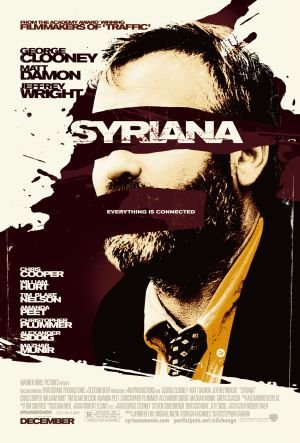Star Wars: Episode III – Revenge of the Sith

Scott Hardie: “It ruled.”
One of the chief complaints about the first two prequels is that they felt like trailers for a better movie coming in the future, so it's nice to have finally arrived at that better movie. This film successfully capitalizes on twenty-eight years of series history to make its every turn convincingly seem like an earth-shattering development; a first-time viewer with no advance knowledge of the series would get a fraction of the enjoyment. (It's a good thing for Lucas that audiences the world over already love his series.) This film is not just the culmination of the six-film series but also its climax, the point towards which the earlier films were driving and from which the later films derived, the point of no return. It's a credit to Lucas's strength as a storyteller that even though we know what Anakin Skywalker's fate must be, the film plausibly dangles hope that another outcome is possible, and bona-fide dramatic tension develops in the last movie you'd expect to have it. It carries the strength of the messenger sequence in "Romeo and Juliet": No matter how many times the play has been performed in these five centuries and always turned out the same way, you still have hope that Friar Lawrence's messenger will arrive in time to give Romeo that news that will let him live happily ever after with Juliet, but Romeo's ill-informed servant speeds by and doom closes its grip on the young lovers. Lucas may like to rewrite his own history, but still, even he wouldn't change the ending of "Sith," and yet throughout it, the battle for Anakin's soul has such compelling power that we hope against the inevitable, and I suspect we will still be able to hope it when revisiting this film after ten years or twenty years. It's every bit the "space opera" that was the original in 1977, except it replaces the freshness of youth with the richness of age. For capturing the full weight, power, and majesty of the "Star Wars" saga in one powder-keg of a finalé, this film is, in my mind, the best of the entire hexalogy.
What helps it get there is an effort to overcome the weaknesses of the previous two films, which I admit had many flaws even though I did find them nearly as off-putting as many viewers. It can be agreed that the performances were wooden, so here Lucas employed dialogue coach Christopher Neil to help the actors find the rhythm of their lines and the conviction to carry the heavier material. To address charges that the dialogue was flat, Lucas hired an uncredited screenwriter (whose name I cannot for the life of me find right now after reading it a few days ago) to polish the draft, and it resulted in great moments like Palpatine's chilling monologue at the opera, where he hints at the hidden depths of evil within himself. If the special effects in the first two prequels seemed like demo reels for the CGI gurus at ILM, now Lucas actually uses them to entertain and tell a story, and lets their magnificence demonstrate itself. And though Jar-Jar Binks is given a hat tip with two fleeting appearances on screen, he is wisely kept mute. The cumulative meaning of these changes is clear: Lucas can be faulted for having poor judgment when the series started, but he has the capacity to learn from his mistakes and improve himself. Were he to have filmed all three chapters at once, we'd have gotten a "Sith" riddled with Jar-Jar's annoying presence and more yawn-inducing galactic politics, but the man clearly has a self-improvement streak, and I defy viewers not to give him credit for it.
What's left beyond the dialogue, which sometimes remains stiff even with the script revisions because of Lucas's insistence on keeping to his classic adventure-serial paradigm, is the spectacle of the affair, and that's what everyone has truly come to see. Lucas does not disappoint, delivering a droid villain twice as deadly as Darth Maul's double-sided lightsaber, and breathtaking alien worlds such as the neon garden jungle where Aayla Secura does battle. John Williams's score is cranked to maximum intensity, heightening the sensation of "space opera" and helping the dramatic material transcend itself, as when Anakin is at last left alone to ponder Palpatine's offer in the Coruscant sunset and we realize this CGI-animated sci-fi cartoon has an actual soul inside it. If I have any real complaint to register, it's that the film drags for too long between its brilliant middle act and dynamite conclusion, taking too much time for its characters to learn information that we in the audience have long known, and more judicious editing would have preserved the momentum of the picture through this necessary stretch. But that's a minor quibble in the face of such ambitious storytelling and otherwise excellent craftsmanship. "Star Wars" has long been the iconic apex of science-fiction entertainment, and the best achievement of its final chapter is drawing upon the series's grandness and enduring popularity to go further than the series has before, into action sequences of awe-inspiring breadth and deep into the tortured soul of its iconic antagonist. This is 28 years of cinematic history realized in the best possible way.
− date unknown • more by Scott • log in or register to reply
Want to join the discussion? Log in or register to reply.
write your own review of Star Wars: Episode III – Revenge of the Sith
Other Movies from 2005

Syriana
Scott Hardie says, "It ruled." Go »
Save the Green Planet!
Scott Hardie says, "It ruled." Go »
Gunner Palace
Scott Hardie says, "It was ok." Go »
Me and You and Everyone We Know
Scott Hardie says, "It ruled." Go »
Hotel Rwanda
Scott Hardie says, "It ruled." Go »






